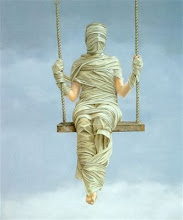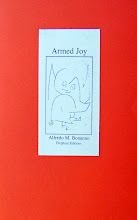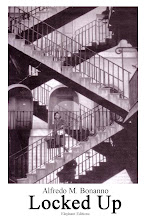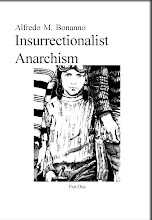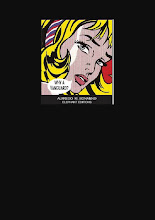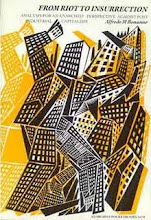First published by Elephant Editions 1974
This book tells of the life, the action and the death of an anarchist guerilla.
Many things have happened since it was first published at the end of the sixties, and experience of armed struggle in Europe is no longer limited to that of the comrades who carried on the struggle against Francoist Spain. But that does not in the least detract from the theoretical and practical importance of Sabate's actions, and the value of this book in particular.
The discourse could be a long one, but let us try to shorten it so as not to complicate things.
It would seem that all anarchists should agree on certain points; not hold exactly the same opinion, but at least be without any major contradictions. The first such issue is that of attacking the class enemy (i.e. the exploiter), both in the macroscopic aspect of the State and in the microscopic one of the individuals responsible for exploitation. Yet when a comrade organises to pass from words to deed, those who come forward with doubts, perplexity, suspicion, uncertainty, are never lacking. There are always some anarchist comrades who have turned their anarchism into a kind of wind-shield to hide their own weakness and compromise. They obviously cannot approve of anyone who contributes to unmasking them with their actions, of who, by attacking the enemy rouses the still waters of sleep, often attracting the attention of the forces of repression.
Such criticism as, "The time isn't right", "These things are only done when the revolution is near", "We must wait to be sure the masses are with us", are constantly aimed at the comrade who intends to act now, right away.
As far as Sabate's actions are concerned, he, in practice, was left alone with only a few comrades who from time to time united with him individually to continue the struggle. But these actions had to take place inside Spain. When it came to wanting to do something outside to strike the fascist regime, there was a flood of disagreement. And also, later, when there was recourse to international collaboration (for example the kidnapping of monsignor Ussia), there were more than a few dissenters. The fact that the action was to be seen in the light of its exceptional objective of saving the lives of comrades who had been sentenced to death was also underlined.
The reader will realise that little or nothing has changed since the time when Sabate carried out his struggle in complete isolation. Even in very recent times, when anarchists have organised to attack, the so-called `official' movement has preferred to remain silent, that is, when it has not come out with declarations of doubt or outright condemnation.
Is this the ineluctable destiny of all organisations? We do not believe so. An organisation that defines itself as custodian of the anarchist movement's ideological traditions must necessarily become conservative and regard all initiatives of attack - especially when not under its control - with preoccupation and suspicion. On the contrary, an organisation born as a structure of attack, capable of modifying itself according to the needs of the moment, that avoids bureaucratisation and has no intention of keeping any `memory', can become the indispensable basis for revolutionary action. And, basically, it is towards this kind of organisation that Sabate's efforts went, as with any other anarchist revolutionary who intends to attack the class enemy.
It is precisely on either side of this separating line that two different models of intervention develop.
On the one hand, the counter-informative model as an end in itself, a structure eternally repeating itself, that survives in its own image, from time to time supplying more advanced opinions on what the forces of power decide to circulate.
On the other hand, a minimal structure organising in order to act, that keeps itself well documented on reality, but only in order to bring about projects of intervention and revolutionary actions, not to distribute it for consumerism. In this perspective everything takes on a different light. In the first place the availability of means. Whoever limits themselves to counter-information bases themselves on the good will of comrades and their subscriptions. Whoever has a precise project of attack must go further, expropriating the necessary finance from the capitalists. But then the level of engagement is also different, in the latter case complete and total.
Of course there are risks. Not so much of life, which for a revolutionary is always at stake in all his decisions, as of separation, isolation.
The imbecility of others, their bad faith in not wanting to understand, their tepidness: all these wound mortally, often more than the enemy's bullets. Interested sympathy is also harmful, as is morbid curiosity.
And Sabate was wounded by all these painful thorns in his side before being killed by the Guardia Civile.
But he never stopped, never drew back. He never let himself be overcome by doubt. And let it not be said (as it has been said) that things were easier for him because we all agree about combating fascism. That is all right for the hypocrites who disguise themselves as revolutionaries, certainly not for anarchists. Fascism is always before us, even when it wears the multi-coloured clothing of Mrs Thatcher's relatively permissive welfare State.
Everyone understands that quite easily. Less easily do they decide to act. That is why a book of this kind is always useful: because reading it pushes one to action, arouses enthusiasm. Because it shows the thousand and one ways in which it is possible to strike the enemy, because it gives no space to resignation and doubt.
It is necessary to understand that we cannot wait for others - not even for other comrades - to give us the sign to act, the final indication. This must come from us. Each one of us, taken individually, must find his or her own comrades and constitute small affinity groups which are the essential element for giving life to the organisation of attack that we need. Actions will come easily, as a natural consequence of the decision to act together against the common enemy. Grand words, declarations to go down in history, the great organisations of the glorious past and vast programs for the future are all useless if the will of the individual comrade is lacking.
And in this perspective Sabate was never alone. His struggle is still continuing today.
skip to main |
skip to sidebar

Some writings of Alfredo Maria Bonanno in English, or almost

Alfredo Bonanno was arrested on October 1st 2009 in Greece, accused of concourse in robbery. With him, anarchist comrade Christos Stratigopoulos.
Here are a few translations and part translations of a small portion of Alfredo's writing. This is a work in progress, many of the translations are as yet incomplete. Open links to find more of Alfredo's work.
Alfredo Bonnano Released
Nov. 22 Alfredo Bonnano was sentenced to 4 years imprisonment (which practically means that with the time served so far and the fact that he is over 70years old HE IS RELEASED
Christos Stratigopoulos (who took responsibility for the action)
was sentenced to 8 years and 9 months with the Greek law will probably be released at the end 2011
BY ANY MEANS NECESSARY
LINKS
click on any of these labels to read text
- "Community" sickness
- 1981 - Editorial
- A Critique of Syndicalist Methods
- A few notes on Sacco and Vanzetti
- A few notes on the revolutionary movement in Italy
- A little man in Singapore
- A million jobs
- A question of class
- Affinity
- After Marx autonomy
- Albania Laboratory of Subversion (Introduction)
- Anarchism and the national liberation struggle
- Anarchists and action
- AND WE WILL ALWAYS BE READY TO STORM THE HEAVENS AGAIN (Against amnesty)
- ANTI-INSTITUTIONAL MOVEMENT
- Are we modern?
- Armed Joy
- ARMED STRUGGLE. SOME REFLECTIONS.
- Autonomous base nuclei
- beyond syndicalism
- Beyond workerism
- But what is the imaginary?
- Class War
- Comiso - Organizational document of the self-managed leagues
- Considerations on illegality
- Dissonances (Introduction)
- Elephant Editions 1986
- Excluded and included
- Farewell to claiming
- Feral Revolution (Introduction)
- FICTITIOUS MOVEMENT AND REAL MOVEMENT
- For an Antiauthoritarian Insurrectionist International - Proposal for a debate
- From riot to insurrection
- From the centre to the periphery
- Good technology
- Guerilla Extraordinary
- Habits and idols
- Hegel
- I know who killed chief superintendent Luigi Calabresi
- Illegality
- Illness and capital
- Informal organisation
- Insurrection
- Internationalism
- Introduction to Sabate
- Introduction to Anarchism and Violence
- Introduction to Bratach Dubh English edition of Malatesta's Fra Contadini
- Introduction to Insurrectionalist Anarchism
- Introduction to Strange Victories
- Introduction to The Conquest of Bread
- Involuntary aspects of voluntary work
- Let's destroy work
- LET'S DESTROY WORK. New introduction
- Let's keep our feet on the ground please
- Lightening Conductors and Stand-ins - more shots of non-news
- Lightning Conductors and Stand-ins
- Lightning Conductors and Stand-ins (cont.)
- Locked up
- Looking forward to self-management
- Loss of language
- More on internationalism
- National Liberation Struggle
- nineteen years on
- No more crises
- Non-news about drugs
- Non-news about racism
- Ode to the Uniform
- On Feminism
- One's life on the line
- Order and chaos
- Otto Ruhle (Introductory Note)
- OUR ROLE IN THE PRESENT CONFLICT
- Palestine mon amour
- Pantagruel anarchist review
- Pinelli
- Prison and Prisoners’ Struggles - Introduction
- Propulsive Utopia
- Quality and the factory
- Restructuring Capital and the new democracy
- Revolution - Violence - Antiauthoritarianism
- REVOLUTIONARY VIOLENCE
- Science and the social revolution
- Self-management
- Severino Di Giovanni in Argentina 1923-1931 by Osvaldo Bayer
- Social banditry
- SOME NOTES -
- Space and Capital
- Stirner
- Stop the City? From information to attack
- Strategy and Methods
- Streamlined production
- The "end" of the crisis
- The aesthetics of anarchism
- The anarchist tension
- The area of autonomy and the anarchist movement in Italy
- The armed wing of science
- The Cruise missile base at Comiso can be prevented
- The ethical bank
- The insurrectional project
- THE LANGUAGE OF TECNICS -
- The logic of insurrection
- The moral split
- THE NECESSARY DESTRUCTION -
- The priority of practice
- The refusal of arms
- The revolutionary project
- The revolutionary struggle
- The significance of an insignificant event
- The struggle for self-managed social space
- The tyranny of weakness
- The whole and the part
- The young in a post industrial society
- Theory and action
- Towards anarchist antimilitarism
- TOWARDS THE GENERALISATION OF ARMED STRUGGLE
- TRANSFORMATION IN THE WORLD OF WORK AND SCHOOL -
- TRUTH -
- Unemployment in Italy - How come everything doesn't explode?
- Untitled
- Violence and non-violence
- What are anarchists
- What can we do with anti-fascism?
- Why a vanguard?
- Why Insurrection
- World domination in a few words

